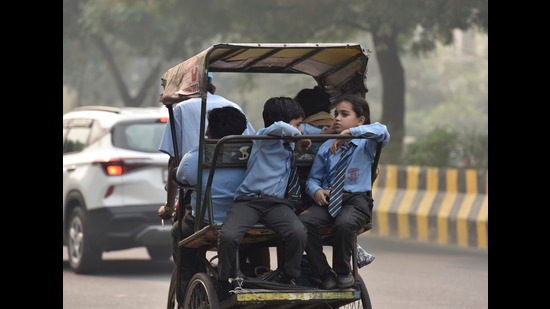Only quality education can empower the people and ensure social justice
We hope the NCF will ensure equal educational opportunities for all, the basis of an equitable, democratic and exclusive society. It will also fulfil the demands of the Dalit ladies of Phulpur and dream of BR Ambedkar and Swami Vivekanand, who said that only education can empower the people.
During the 2021 Uttar Pradesh (UP) assembly election, my team and I were studying the social roots of politics in India’s electoral democracy. As part of the study, we interviewed illiterate women from a marginal social group at Phulpur near Prayagraj. During our conversation, the women reiterated that they have only one demand from the government: Quality education for their children.

Around the same time, the Union ministry of education was working to implement the New Education Policy 2020 (NEP 200), which aims to ensure quality education for all students, a basic necessity for forging an inclusive society. In addition, in October this year, the central government released the National Curriculum Framework (NCF) for the Foundational Stage and the pilot project of Balvatika 49 Kendriya Vidyalayas across the country.
The NEP 2020 has set India’s education system on a path to delivering the highest quality education for all, with equity and inclusion. Among the most transformative aspects of NEP 2020 is the new 5+3+3+4 curricular structure, which integrates Early Childhood Care and Education for all children (three to eight years). This is important because early childhood lays the foundation for life-long learning and development; it is a crucial determinant of the quality of overall life. “This framework is expected to deliver the highest quality foundational education, across all types of institutions in the country,” the ministry of education said in a press release.
The NCF aims to equip young ones with the cognitive and linguistic competencies of the 21st century. Some of the key features of the NCF are: No textbooks for children between ages three and six, learning based on toys, play and lived experience, use of mother tongue, stories of Indian heroes and traditional concepts of teaching, books incorporating diversity, gender, moral and ethical awareness, and assessment through observation and analysing creativity.
To meet these goals, the NCF has drawn inspiration from the Indian traditional knowledge systems, such as panchkosha vikas, which ensures the all-round development of children through physical development (sharirik vikas), development of life energy (pranik vikas), emotional and mental development (mansik vikas), intellectual development (baudhhik vikas) and spiritual development (chaitsik vikas). This panchkosha vikas could also work as a foundation of the child- teaching-learning pedagogy under NEP 2020. Under the panchkosha vikas, the local and cultural contexts are essential, which are also a critical constituent of NEP 2020.
The NCF philosophically derives from the insights of India’s icons, such as Savitribai Phule, Jyotirao Phule, J Krishnamurthy, Rabindranath Tagore, Swami Vivekananda, Mahatma Gandhi and Sri Aurobindo. All of them tried to develop an Indian education system during their lifetimes.
The NCF is evolving an education system for the children that ensure all-around development as competent, sensitive, and spiritual human beings. The central government’s other initiatives, such as Nipun Bharat, the Anganwadi system, and the Balvatika schools, will also help to control the mushrooming of commercial child care and preschool centres.
We hope the NCF will ensure equal educational opportunities for all, the basis of an equitable, democratic and exclusive society. It will also fulfil the demands of the Dalit ladies of Phulpur and dream of BR Ambedkar and Swami Vivekanand, who said that only education can empower the people.
Badri Narayan is director, G B Pant Social Science Institute
The views expressed are personal





